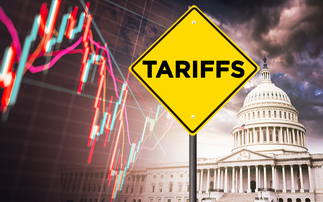Pensions professionals are unsure whether the government's claim that it will always 'pay to save' thanks to its reforms is true.
Respondents to this week's Pensions Buzz were split over the question. Many who thought that measures introduced by the current government would give sufficient incentives to save were nevertheless worried that politicians would meddle in future.
__________________________________________________
Question: Do you believe the combination of auto-enrolment and state pension changes mean it will always 'pay to save' in future?

__________________________________________________
It will pay to save "as long as politicians don't move the goalposts again" was a typical response.
Others were concerned that Britons would not save enough, even if the system was well designed to encourage this. Short-term concerns would continue to drive the behaviour of many people, they warned.
"It is another matter whether or not the average person feels the pension they eventually receive was actually worth saving for," warned one respondent.
A contributor who thought the general population was yet to buy into auto-enrolment said: "Changes to the UK's culture will take at least a generation."
"It always did pay to save," said another respondent. "But I am far from convinced the state pension changes and auto-enrolment will convince anyone of this."
Many who thought the reforms would not ensure that it always paid to save were particularly concerned by housing policy.
"We still have the problem of housing policy in retirement," said one respondent. "So for some people it may turn out that it doesn't always pay to save. This may get worse if fewer people own their own house in retirement, unless the policy changes."
Others predicted that the state would have to step in when people retired with inadequate incomes.
"Auto-enrolment is not compulsory so there will be pensioners in receipt of no more than the universal state pension," said one respondent. "Presumably then the state will have to subsidise both their housing costs and general living expenses which will again be means-tested."
But most sceptics simply did not believe the changes would be left in place long enough to have the desired effect.
One cynic pointed out: "The way the state pension changes are being phased in means there will be a very long transition from the old system to the new, longer in fact than any recent state pension has survived without change."







